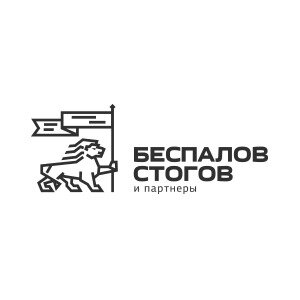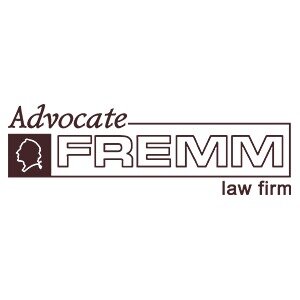Best Water Law Lawyers in St Petersburg
Share your needs with us, get contacted by law firms.
Free. Takes 2 min.
List of the best lawyers in St Petersburg, Russia
About Water Law in St Petersburg, Russia
Water Law in St Petersburg, Russia is a specialized area of environmental and property law that governs the use, allocation, protection, and management of water resources in the region. The legal framework is primarily based on the Water Code of the Russian Federation, along with local statutes and regulations tailored to the unique conditions of St Petersburg. Key issues addressed by Water Law include the rights to use water bodies, the obligations of water users, water pollution control, flood prevention, and the protection of aquatic ecosystems, especially considering the city’s location on the Neva River delta and its numerous canals and lakes.
Why You May Need a Lawyer
There are several reasons you might require a lawyer experienced in Water Law in St Petersburg:
- Acquiring or transferring rights to use water bodies for commercial, industrial, or private purposes
- Dealing with disputes over waterway boundaries or riparian rights
- Addressing fines or enforcement actions related to water pollution or unauthorized usage
- Negotiating permits and licenses for construction near or on water bodies
- Participating in public or private projects impacting waterways, lakes, or wetlands
- Challenging government decisions concerning water resource allocation
- Ensuring compliance with flood prevention or environmental protection regulations
- Understanding obligations if your activities affect natural watercourses or urban drainage systems
Local Laws Overview
The main legal source regulating water relations in St Petersburg is the Water Code of the Russian Federation. In addition, numerous federal, regional, and municipal laws and regulations apply. These local laws are especially important given the city’s historic and geographic circumstances, such as its vulnerable position related to flooding, ice movement, and sediment transport. Critical legal areas include:
- Classification and registration of water bodies including rivers, lakes, canals, and wetlands within city limits
- Permit systems for water use, particularly regarding abstraction, construction near water, and discharges
- Rules for the protection of water bodies from pollution and misuse
- Special restrictions related to monuments, heritage sites, and territories of historical significance intersected by waterways
- Flood control measures and their legal procedures
- Obligations of enterprises and citizens for maintaining the ecological balance of water resources
Frequently Asked Questions
What is considered a water body under the law in St Petersburg?
Under the Water Code, water bodies include rivers, lakes, canals, reservoirs, ponds, and artificial waterways. In St Petersburg, this definition covers the Neva River, various canals, and other significant urban and suburban water bodies.
Do I need a permit to use water from a river or canal?
Yes, any use of public water bodies for purposes beyond ordinary domestic use usually requires a permit from the relevant authorities. This applies to abstraction, diversion, or other forms of usage.
Can I build a structure along a river, lake, or canal?
Any construction along or on water bodies generally requires approval from municipal and environmental authorities. This includes compliance with setback, protection, and safety regulations.
What are the penalties for unauthorized use or pollution of water in St Petersburg?
Unauthorized use or pollution of water bodies can result in administrative fines, suspension of activities, mandatory remediation, or even criminal prosecution in severe cases.
How are water rights obtained or transferred?
Water rights are typically granted through state or municipal authorities via usage permits or lease agreements. Transfer of rights is strictly regulated and involves official registration.
What is the procedure for resolving disputes over water use?
Disputes may be settled through out-of-court negotiations, mediation, or litigation in the courts. Specialized legal assistance is often required for effective dispute resolution.
Are there special rules for water use in flood-prone areas?
Yes, extra requirements apply in flood-prone districts. Activities in these areas are strictly regulated, and specific flood-prevention and safety norms must be followed.
Who is responsible for maintaining public waterways?
Maintenance and protection of public waterways are the responsibility of municipal or federal authorities, but water users may have obligations to avoid pollution or destruction and to contribute to restoration efforts if necessary.
Can industrial enterprises discharge effluent into city water bodies?
Only with the proper permits and compliance with strict emission standards. Unauthorized discharges are subject to severe penalties.
How can I report illegal use or pollution of a water body?
Suspected violations can be reported to local environmental authorities, the city’s natural resources department, or the prosecutor’s office, depending on the situation.
Additional Resources
If you are seeking further information or assistance regarding Water Law in St Petersburg, the following resources may be helpful:
- Committee for Nature Use, Environmental Protection, and Ecological Safety of St Petersburg
- Federal Service for Supervision of Natural Resources (Rosprirodnadzor)
- Moscow District Water Basin Authority (operates regionally and covers St Petersburg)
- Legal aid organizations offering pro bono support in environmental and land use matters
- Local offices of environmental NGOs with expertise in water issues
Next Steps
If you believe you require legal advice or representation concerning Water Law in St Petersburg, consider the following practical steps:
- Gather all relevant documents, permits, correspondence, and evidence related to your issue
- Make note of key dates, locations, and individuals involved
- Contact a qualified lawyer with experience in Water Law and environmental regulations in St Petersburg
- Consult with local authorities or legal aid organizations for an initial assessment if necessary
- Act promptly, as certain actions may be time-limited by law or required for ongoing compliance
Every case has its own nuances, so do not hesitate to seek professional legal advice to protect your rights and interests related to water use or disputes in St Petersburg.
Lawzana helps you find the best lawyers and law firms in St Petersburg through a curated and pre-screened list of qualified legal professionals. Our platform offers rankings and detailed profiles of attorneys and law firms, allowing you to compare based on practice areas, including Water Law, experience, and client feedback.
Each profile includes a description of the firm's areas of practice, client reviews, team members and partners, year of establishment, spoken languages, office locations, contact information, social media presence, and any published articles or resources. Most firms on our platform speak English and are experienced in both local and international legal matters.
Get a quote from top-rated law firms in St Petersburg, Russia — quickly, securely, and without unnecessary hassle.
Disclaimer:
The information provided on this page is for general informational purposes only and does not constitute legal advice. While we strive to ensure the accuracy and relevance of the content, legal information may change over time, and interpretations of the law can vary. You should always consult with a qualified legal professional for advice specific to your situation.
We disclaim all liability for actions taken or not taken based on the content of this page. If you believe any information is incorrect or outdated, please contact us, and we will review and update it where appropriate.














